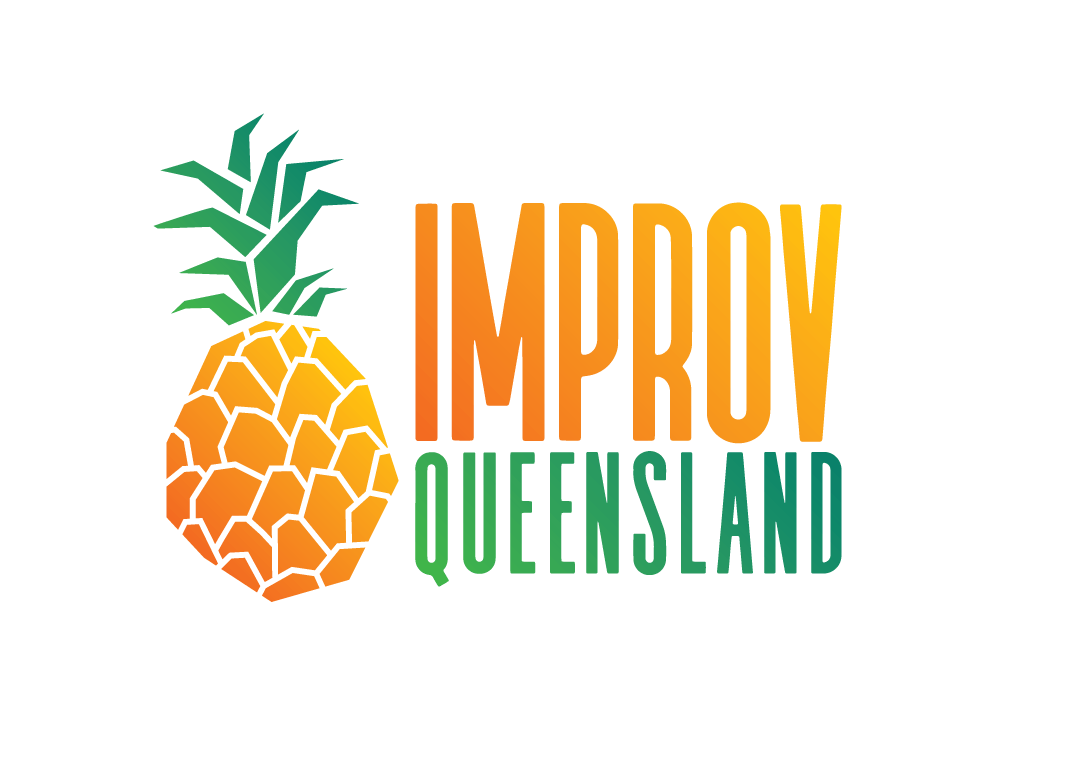Mindfulness, Mental Health, Psychology and Being Present
ImproMafia teacher Leica A Baker, in a LABcoat, in a LABoratory.
Hello experience-seekers, personal-developers and creatives - whoever you are, however you got here... welcome! Take a seat and settle in as I presently present you with a present; a delectable degustation of improvisation (impro) delicacies.
First, an appetiser: enjoy each morsel of a moment ✨MINDFULLY ✨.
Like a muscle, our ability to be mindful can be strengthened, especially through practice of improvisation.
Described by Headspace as the concept behind learning to be fully present and engaged in the moment, mindfulness is also being aware of your thoughts and feelings without distraction or judgement.
In an exercise based on Augusto Boal’s Mirror Sequence and Viola Spolin’s Mirror Exercise, partners stand two arms lengths apart (social distancing = check!) and lead each other through abstract movements, mimicking each other with such focus and precision that outsiders can’t tell A from B. Your only goal is your partner’s success.
With further iterations, there is no leader; followers follow the follower and control is shared moment by moment. Some participants will experience a fluid connection between body and mind, and their partner. They reach a synchronised momentum where the movements happen to them, effortlessly. Think: Grandad’s Newton’s cradle in perpetual motion. Time slows as the pair attune to every breath, finger twitch and the tiniest shifts in weight, unaffected by any thought or distraction outside of the exercise. In my last beginner’s course, one participant was moved to tears.
Accessing this all-encompassing phenomenon is popularly known as FLOWSTATE, and honestly, I would buy it by the bottle.
Enter entree: a taste of bigger things to come, ✨ PSYCHOLOGY ✨.
Mind, behaviour, and conscious and unconscious cognitive processes like thoughts and feelings have been long considered alongside the practice of improvisation by modern pioneers of the craft globally.
“Know that you are right. Know that you are good. Know that you knew how to do this when you were six years old, other stuff just got in the way.” -Jill Bernard
It is a musing held by many that decades of contemporary schooling are to blame for our lack of imagination and spontaneity. Cue a term I just learned: Perfection Paralysis (the immobilising fear of failure), and I’d just like to thank a quarter of a lifetime of social conditioning as a Caucasian-heterosexual-cis-female-millennial for mine!
“...think of children not as immature adults, but of adults as atrophied children.” -Keith Johnstone
In Impro: Improvisation for the Theatre, Johnstone describes exercises used to unlock the imagination, and tap into students’ truest, most spontaneous selves on stage, making faces, leaping without looking, screaming, shouting and misbehaving. Spontaneity like this is possible without feeling a need to be the funniest, wittiest, loudest or obnoxious. Those behaviours tend to come when players conceal a fear of failure or being unoriginal.
Failure is often laden with judgement and stress. But we are going to fail, particularly when we’re trying to make something up with other people in the moment. If we can welcome failure as an essential component of improvisation, throw our arms in the air and yell “Again!” suddenly the blame and the judgey, old self-criticism isn’t quite so loud.
“Good improvisers seem telepathic; everything looks prearranged... they accept all offers made – which is something no ‘normal’ person would do.” -Keith Johnstone
Though, accepting doesn’t mean you never say “no” or try to enforce your own perception of reality on others, but rather supporting your scene partner’s offer or endowment and trusting your instincts.
Ooh! Look! Here comes ✨Mental Health✨, a hearty main to nourish our body and soul.
If you have read, watched or listened to anything throughout the pandemic, you would have heard that positive mental health is essential for emotional, psychological and social well-being and burnout prevention. Supporting positive mental health with self-care activities (like improvisation) helps people cope with the stresses of life, work productively and realise their own potential.
Performers and non-performers who take on the hobby alike describe immediate improvements in self-esteem and confidence because the skills and concepts we explore, like listening, embracing failure, and status, are directly translatable to real-life, and even work! I have trained with people too frightened to take a job interview, too shy to engage socially, or “just not creative”, who have stuck the course and then surprised themselves, intoxicated by the high they feel from sharing what they learnt on stage for their family, friends and strangers.
But, it’s not all subjective. There is a vast collection of published and ongoing academic research into the effects of improvisation on creativity, psychological health, divergent thinking, and uncertainty tolerance. People write their PhDs on this stuff!
Plus! We get our happy hormones flowing in workshops by moving our bodies and laughing (Endorphins), completing a lil’ exercise (dopamine), accomplishing a shiny new skill (Serotonin), and paying attention to and trusting our scene partners (oxytocin)!
(By the way, I made this GIF)
And, finally, dessert is served! Could ✨Being Present✨ be the greatest gift of all?
People often ask, how and why we rehearse for impro. Well, the answer is pretty simple. We train and rehearse improvisation skills like listening, accepting, and embracing failure, so they become impulses, so we can be present in the moment and trust our instincts and take creative risks without fear. Practicing being present also gives us the freedom to face real-life challenges with clarity and empathy.
There is no taste sweeter than the peace and stillness that comes with being free from the noise of internal dialogue, of judgement, of emotions from the past and eagerness of the future; free to be fully focused and engaged in here and now.
If you’re keen to unlock some creative potential, or explore the social and well-being benefits of being present with six weeks of super-fun food analogies, head to our booking page to sign up.
See you there!
-By Leica Baker

